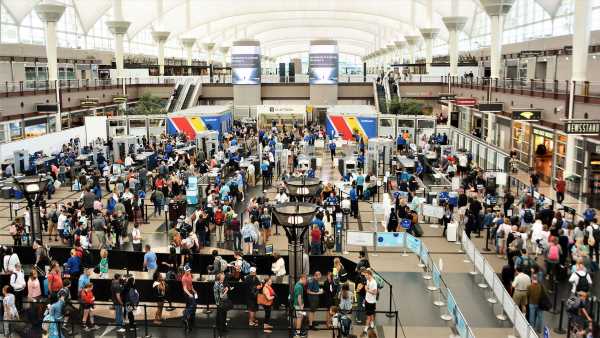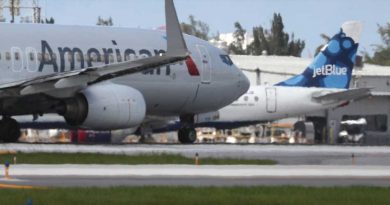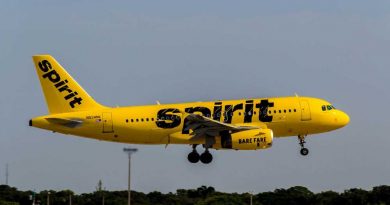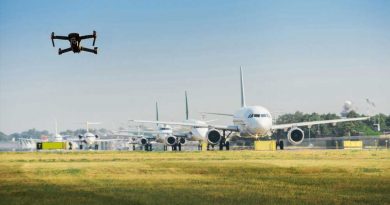Is demand for air travel falling? Depends who you ask
U.S. airlines have presented widely divergent perspectives this week on the demand environment, with discount carriers reporting a recent plunge and full-service carriers asserting that demand remains in line with earlier expectations.
“Over the last couple weeks, things have changed and sequentially gotten worse,” Frontier CEO Barry Biffle said at the Morgan Stanley Laguna conference on Wednesday. But in an appearance at that same conference, executives for Alaska, United and Delta offered confident assessments for the coming months.
“We see really strong business and high yield through the fall,” Delta CEO Glen Hauenstein said on Thursday.
Over the course of the week, American and Delta, as well as the ultralow-cost carriers Frontier and Spirit, published guidance updates for the third quarter.
Spirit joined Frontier in reporting a sharp drop-off in demand. The airline lowered the midpoint of its revenue guidance for the third quarter by $60 million. Lower demand, coupled with higher than anticipated fuel costs, has caused Spirit to expect a negative operating margin of approximately 15% for July through September. That’s much worse than the carrier’s estimate in July of a loss margin of approximately 6.5%.
Similarly, the double whammy of reduced demand and surging fuel costs has Frontier now guiding toward a negative operating margin for this quarter of 4% to 7%, compared with its previous expectation of a 4% to 7% operating profit.
The major airlines, too, are anticipating lower margins due to fuel costs. But each still expects to record an operating profit during the third quarter.
Delta has lowered its operating margin guidance to 13% from an earlier expectation in the mid-teens. American now anticipates an operating margin for the quarter of 4% to 5%, down from earlier guidance of 8% to 10%.
Neither of those large carriers has made substantial changes to its revenue guidance. Notably, Delta now expects revenue for the September quarter to be in the upper half of the range it projected in July.
The canary in the coal mine?
Speaking at the Morgan Stanley conference, Biffle said that Frontier is the canary in the coal mine. Full-service airlines also will feel the impact of diminishing demand, which he argued is now accompanied by a glut of industry capacity.
“If there’s a slowdown, there’s a slowdown. And it impacts everything,” he said.
But both Hauenstein and Mike Leskinen, president of United Airlines Ventures, said that the ULCCs might be feeling an impact from aggressive growth.
According to the consulting firm Ailevon Pacific, Frontier is scheduled to fly 44% more seats in October than it did in October 2019, and Spirit has 41% more seats scheduled. Meanwhile, American, Alaska and Delta expect to fly slightly fewer seats next month than they did in October 2019, and United is scheduled to be up in seats by 3%.
“It is clear that those carriers that are growing dots on the map; something is happening that is much worse for them,” Leskinen said.
Added Hauenstein, “People say, ‘when’s revenge travel going to be over?’ I think it’s got a long way to go. And I think for our customer it will work well through 2024.”
Source: Read Full Article



